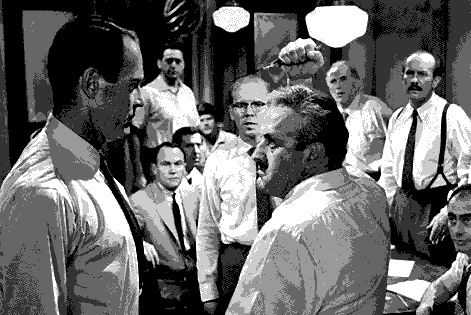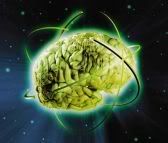
The irony was not lost on me that I just finished writing the piece about the two cops (the parables of 12 views of God) which was actually an atheist allegory of the theodicy problem, and no sooner had a finished then I turn over to my aol greeting page and see that one of my favorite modern heroines, Benazire Bhutto, had been murdered. She was assassinated in a manner not unlike that of Sadat. Arab terrorists like to go out with big bangs. Another meaningless act of violence against a heroic individual who gave her life to make the world a better place. Yet I cannot agree with the atheists who would use this as another opportunity to try for the big magic King’s X God beater argument. We live in a screwed up world. Either it’s fallen or it’s just crap from the get go, but we do live in a world that more resembles The Marquis de Sade’s circus of pain, rather than the creation of a kind loving God. The problem is, this is one of the great oceanic questions. People have been writing about these questions for thousands of years. Why am I here? What is life about? Is there a God? Why do we suffer? Why is there evil in the world? The atheists want to reduce these to oversimplification: these things prove there is no God, they are just accidents and random chance, that’s it end of story. But these questions lend themselves to easy solutions. This is one of the reasons Sartre thought life was meaningless and absurd. These questions remain important even when we try to sweep them away and dismiss them as just “that’s the way it is.” They don’t disprove God; they demand that we think about God because we know instinctively that somehow God is necessary for the answers. Try to reduce them and dismiss them, their importance cries out, try to resolve them too neatly with a fundamentalist formula and they lash back and become theodicy problems.
There are three major answers to theodicy usually employed by theists:
(1) free Will
(2) mitigate the harms of pain
(3) defining God's nature in such a way as to explain pain
The first is free will. The reason free will keeps popping up in theodicy is because it is often put forward as a mitigating factor that allows God's loving nature to be circumvented in therms of allowing pain. Of course atheists are always quick to disvalues free will as though it has no meaning and they gladly do without if only they didn't have to live with the ambiguity of God's problematic existence. But, that is really a strange state of affairs for people who fancy themselves "free thinkers." Could a gaggle of rebellious libertines who hate to be told they need to accept God's laws really be happy as robots, created to obey with no alternative? I've seen atheists argue that God would have been much more kind and much more intelligent to make them unable to object to his will so that there could be no pain in the world. I have seen them go so far as to argue that free will is non existent and meaningless. What then is the value of "free thinking?"
atheist reduce this to utter simplicity by taking out the reasons for it. It is represented by no 1 in the Vuletic article (see 12 angry stereotypes:"I thought about intervening," said the first officer, "but it occurred to me that it was obviously better for the murderer to be able to exercise his free will than to have it restricted.
The second is mitigate the harms of pain. The most familiar of these is "pain builds character." This one is so idiotic even Vuletic didn't model it in his twelve officers. The closest he comes to it is no.12: "Oh, well it was just a test. Ms. K and I had been dating for some time (no offense, I didn't know she was someone else's property), and one beautiful night she finally told me she loved me." But seriously, we can dismiss this one ourselves. Pain huts. It's bad. IN a sense it builds character but only if you stop it in time. After a point it just wears you down more. So it destroys character too. I can't really blame the atheists for all of their mocking, or rejection of these answers. Some of them are pretty flimsy. I especially hate the mitigation of pain answers. I am totally against using them. But one version of harm mitigation is the "God will make it up to us" answer. This was mocked in no 9: "Moments after Ms. K. flat lined, I had her resuscitated, and flown to a tropical resort where she is now experiencing extraordinary bliss, and her ordeal is just a distant memory." Of course that would be idiotic for a cop to say. Not quite so idiotic to believe that God would take her spirit to a celestial paradise. Although I don't find that an inspiring answer because it does sound like just an excuse and it doesn't answer the problem of the injustice in this life. But I do not rely on the joys of heaven as an answer to the pain of life, however, there is a specific use to this line that atheists don't think about. That use is in answer to the question of about God having created in the first place; Why would God create anything at all knowing that a world of pain and injustice would result? My answer has been that God alone would see how the positive nature of creation, pain and all, outweighs the negative. Only God could understand how creation is worth in in spite of the torment and anguish that is felt in life. The Vuletic article reduces this to "God will make up for it in heaven."I can't really say that he's dealing with my answer in particular, on the other hand, I think this hedonistic calculus God style is a good point to make. It is not an answer to the problem of pain per se, but it is a good answer to questions about God's rational for creation.
The Vuletic parody of this answer is in no.3: Ms. K's rape and murder admittedly seems pretty horrible when taken in isolation. But when you put it into context with the rest of life, it actually adds to the overall beauty of the big picture. Ms. K.'s screams were like the discordant notes that make fine musical pieces better than they would have been had all the notes been flawless." But he's missing two crucial things here: (a) I have never said pain is beautiful; non of my answers include any sort of attempt to turn pain into a good thing. (b) It doesn't place the answer in its proper context. My view is a comparison of isolated paint to some big picture in which pain becomes some enhancement to pleasure. My view is merely a start cost benefit analysis. I am not pushing for some mystification of pain such that it turns out to be some sort of enhancing element. I mere argue that it doesn't weight the good that results from creation. And that only God can make do the math because it requires an all knowing mind. We can and should assume that if God is real then God has done the math. Now many atheists have objected that this is circular, I've assumed God before God is proven. No that is a childish understanding of logic. Of course I am assuming God, that's my belief system. I'm not using this a proof for the existence of God so it's certain circular. It's merely a rational assumption given the nature of my belief. Only if I tried to use this as an argument for God would this be a problem.
The Third option is to redefine the nature of God;to monkey around with your understanding of God's nature. Most Christians are not going to argue that God can't stop pain, or that he is helpless to control events on earth. Most Christians are not going to argue that God can't understand our pain, and the more we de claw God in one the intervention area the less God's loving fatherly nature means anything. If God can't relate to our pain he cant' really relate to our love either. If God can't understand our pain then he can't comfort us and all the reliance upon assumptions of God's love would be moot. Thus this is a moot option, except for process theology. Process theologians deny that their view of God is impersonal but it is. Their impersonal God can't act in stop pain in the world because he is only potentially God in one pole, and evolving with the world in the other. (monkey around, get it? evolution, process, never mind).
There's another way understand the nature of God and change God's recreation to the problem of pain, without reducing God to some impersonal force that can't relate to our pain. That is by understanding that God is more than our understanding includes. God is consciousness in some sense, the source of consciousness. But that doesn't mean that God's understanding is limited to ours. Now there are two problems atheists face that this point: (1) they can't believe that our understanding is limited. I've debated a lot of atheists and it's my experince that most of them have a hard time even getting this concept. Most atheists seem to believe that science knows everything. Anyone who really understands science knows how far from the truth this is. (2) atheists reduce the notion of God t a big man in the sky. The Vuletic article casted God in the role of a policeman. If the only rational view of God is that of a big cop whose job is to prevent law breaking and problems, then atheists are right. Of course there is no God of that sort. The basic formulation that atheists want to make, if pain, then no God, is obviously true if and only if this is the only sort of God there can be.
In my view this is a juvenile proposition. God as a big king on a throne is a metaphor not a reality. God as a big policeman is an extension of that metaphor. As a serious theological proposition, its the comic book version. My own view of God is mystical; and by that I mean God is beyond word, thought or image. We cannot understand God. Now when I say that, the first thing people want me to do is define God. But I'm saying we can't do that. Go is not a thing in creation. God is not alongside other things. God is off scale, we can't understand God. This means that my theology is largely apophatic, meaning, we cannot show the hole in the donut, so we show the hole by describing the donut around the hole. We can't say what God is so we say what God is not. Now my view is not entirely apophatic, because I do think there are some positive things we can know. In that snese my view is more existential. Here's what I mean by that:
Paul Tillich speaks of the ancient Dichotomy which is found thought theological history of the West, that between the essential and the existential. This is found in History of Christian Thought a compilation of lectures he gave in 1968. The dichotomy is between the essentialist (Agusutine--Platonic view) and the existentialist (Aquinas--the Aristotelian view). But he says his own existentialism is based upon the essential. This is because while the essentialist is static and non active, and the existential is al action and dynamism (the real issue between the two is not forms vs particulars but stasis vs change) the existential must play off of something, change without substance to change is nothing. Since I have based my view of God upon Tillich's notino of God as Being itself, and there we can see the essentialist basis, being, stability, always existing, stasis, there is a dynamism inherent in the nature of being as well. Being is always fomenting the beings and thus an evolutionary and developmental process is always unfolding in a dynamism out of the stability of eternal being. Heraclidus is known for his view of the world as constant flux but most people forget he saw this flux as taking place in a larger framework of stasis. Thus God is a sort of dynamic stasis or a self revealing mystery. We can get some of it, but the real understanding comes through experience which is beyond words. It cannot be communicated because that would require words. Attempts at communication always lead to botched understanding.
Thus in my view God is as analogous to a principle or the laws of physics, as to a big mind. I do not rule out consciousness on God's part. but I am prepared to understand it as a sort of Consciousness the likes of which is totally beyond our ability to understand. I try to juxtapose images of the personal God with images of the impersonal in order to remind myself that God is beyond our understanding. The Bible does this too. The Hebrew God is imaged as a whirl wind, a storm, a burning bush, but the bush talks (without a Texas Ancient). God is seen as a woman giving birth and a mother bear an mother eagle, as well as a king on a throne. All of these images suggest that God is beyond our understanding, cannot be pinned down to one consistent metaphor. For this reason I don't like to use the iea of "personality." I prefer to speak of God as conscious or "consciousness itself" rather than "personality." Personality theory in psychology is all about why we are abnormal and what's wrong with us. Personalities have quirks. God would not have personality hang ups. But consciousness can be anything. All we need for that is self awareness and the I-thou distinction. Consciousness can be beneath us, or far above us. We see a reddish discoloration in the sink, some form of mold of fungus. We assume it's not alive and doesn't think. In our sense it does not. Now I'm not saying I talk to discolorations in my sink, I'm not making new age assumptions; but from a philosophical stand point, we can't say it's not conscious. Of course it wont learn the alphabet but who can say that on the scale of molds, that it is not a fungic bard reciting the reddish tribe's version of the Iliad? We could go to the opposite extreme as well. We are the fungus compared to God.. Not that God can't understand or care for our pain, but he understands so much more than that we can't fathom his reasons for things. No this is not to say that pain is beautiful or that we can conduct a symphony while women are being rapped. It means God has reasons we don't know! Reasons we can't relate to. This is because God can see a much larger picture than we do. I shot a bird with my bb gun when I was ten. It didn't' die and I found it wounded in the back of the house. I felt ashamed and sorry and vowed never to shoot birds again. I tired to nurse it back to health in a shoe box, but it died the next day. How could I possibly explain to the bird why I shot it and how sorry I was? The fact that I could not explain doesn't mean that I did not have those feelings.
God understands the issues of life in a different way, on a different level. That is not to reduce the importance of pain or to deny the agony of suffering, but in thinking about why we have the the kind of world we do and what that really says about God, it says more, with more possibilities than just "God doesn't care." God does not manage the world. God is not a big building contractor in the sky, nor a policeman, nor a judge, nor a king. He's not watching every move to police all events.For one thing its not likely that thinks as such. All the issues of an undetermined universe could be played through as hypothetical senerios in God's mind in a single nanosecond. God has no need to deliberate or plan. There no reason to think that God uses ratiocinations. The major perimeters can be put into place in the same basic act of creation that establishes the very first existent. Whitehead's understanding was more analogous to a stage director in the performance of a play; ushering actors (actual entities in Whietheadian parlance) on and off the stage. But this would not be analogous to the kind of macro management that atheists and fundamentalists imagine. This would be at the subatomic level. God's connection with the universe can be a lot more organic, less like a child moving about his toys and writing the major action of his characters.
Of course all of these ideas are hypothetical and theoretical. My Soteriolgoical drama is theoretical. I don't know anything about God's nature or his aims. I'm only guessing but then this wold be the major thrust of answer to theodicy:
(1) soeteriological drama: God's major aim is to create free moral agents who willingly choose the good. Toward that end we must live in a real world in which one must undertake a life long search for truth, because that is the only way to internalize the values of the good. Thus the world must be neutral in terms of the obviousness of God's existence. There are enough clues to make a leap of faith but not so compelling that all must give assent.
(2) God understands values at a higher level: God understands the bigger picture in a way that we can't. Even though he cares and loves he doesn't do social engineering and doesn't base creation upon a utilitarian premise.
We can also understand God's love by understanding the human capacity for love. We should assume that the basic human capacity for decency and love is a reflection of the divine; indeed we can do no more than that. Atheists are willing to assume that human love is just an emotional state arising from chemical reactions, and a buy product of consciousness, which is in itself a side effect of having a brain. There is actually no way to leverage the proof one way or the other. But it seems unnecessary from an evolutionary view point. Now one can show utilitarian functions of love, but love in the sense of agope, charity, the willingness to according the other basic dignity and value, can also get one in trouble. Love is not a practical device for the survival of the tribe. It could easily get the tribe wiped out. Our moral value systems are ultimately a extension of our capacity to empathize with others, and this is a basic form of love in the agopic sense. That's as close to something divine as we can knowingly come and it is universal to all human culture.
Atheist assumption is that God is all knowing and can anything he wants. Thus to create at all is to pre determine a world of pain and suffering, thus God is guilty of causaing all pain and suffering. On the blog Debuncking Christianity right now Lee Randolph has a piece that argue this very thing.
first few premises:
* God is omniscient.
* God is timeless.
* God Created everything.
* God Chose how to create the world and knew how it was going to react after he made it.
* God Chose how to create people and knew how we were going to react after he made us.
* If he knew what was going to happen to us, then before we were made, our destiny was recorded.
* If he made us with free will, and he knew what was going to happen to us before he made us, then any exercise of that free will was already known by him and was really only the appearance of free will.
* In the course of our life, because we can not know the future, it appears to us that we have freewill.
God is a big man, and understandings things they way we do and purposely makes everything happen and knows exactly every little move we will make so we can blame God for everything we do.
Just because there are great oceanic questions that are not easily answered hardly means that there is no God. This is not the great God beater argument because they hang in the balance, with inferences drawn from the nature of the world on one side, and unanswered God arguments on the other. If we try to argue from the nature of the world to the nonexistence of God, open the door to design arguments. That’s the reason for rejecting the design argument (no undesigned universe to compare it to), but try to use it for theodicy and we have to accept the design things. On the other hand, if we rule out design on the grounds that we can’t reason from the nature of the world to God without pre judging the outcome by the same token we can’t make the same assumption on the other side. We cannot reason from pain and suffering to the lack of a God. That is going to require that we know something before hand about the nature and purpose of God. For this reason atheists are always trying to read in the most austere and comic book version of God; they want us to believe in a God who is a big guy in the sky because its easier to judge a big guy who is just like us, only more powerful and maybe smarter, than it would be to compare to a grate unknown







